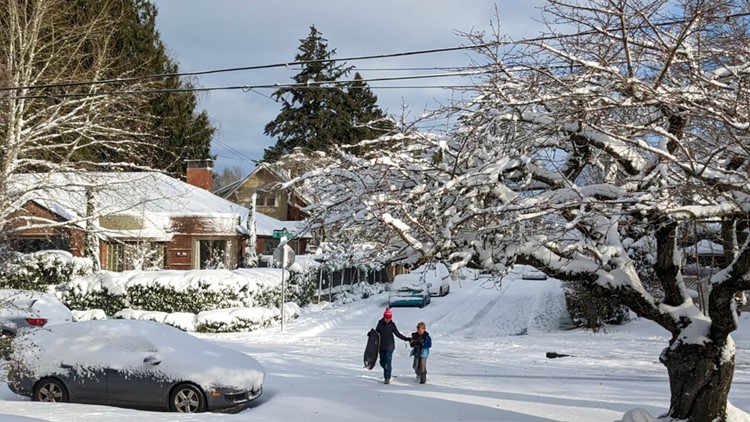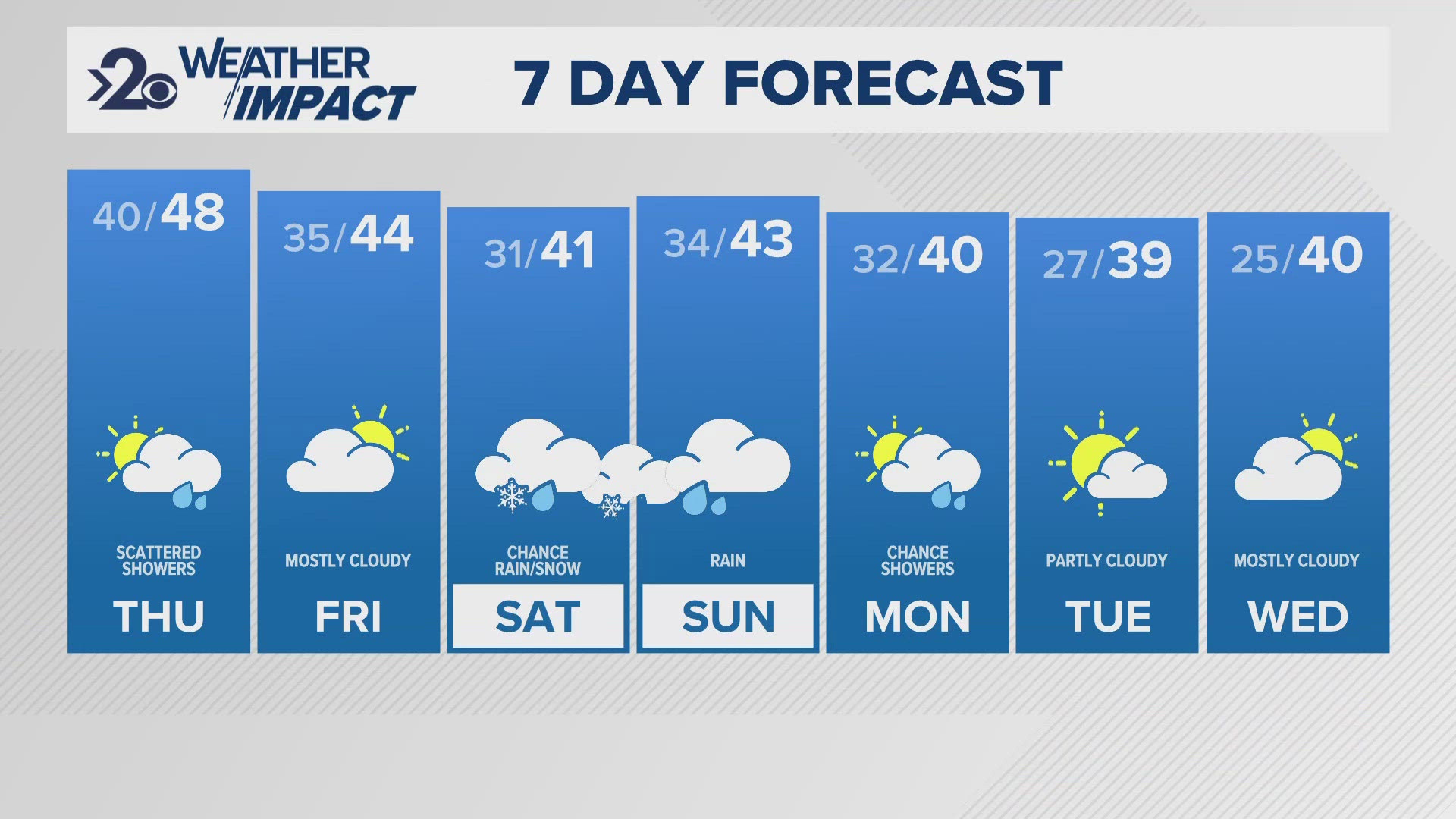PORTLAND, Ore. — Winter storms sowed more chaos across the U.S. on Thursday, shutting down much of Portland after the city experienced its second snowiest day in history and paralyzing travel from parts of the Pacific Coast all the way to the northern Plains.
The nearly 11 inches of snow that fell in Portland stalled traffic during the Wednesday evening rush and trapped drivers on freeways. Some spent the night in their vehicles or abandoned them altogether as crews struggled to clear roads.
The storms brought heavy snow to places that rarely see it, knocked out power to hundreds of thousands of homes and grounded or delayed thousands of flights.
For the first time since 1989, the National Weather Service issued a blizzard warning for the Southern California mountains. Forecasters predicted “multiple rounds" of snow, with accumulations of up to 3 to 5 feet (0.91 to 1.5 meters) predicted for the Sierra Nevada region.
Snow was also expected over some lower foothills and valley areas near the Pacific Coast, the weather service said, “given the depth of cold air that has infiltrated the West.”
Large amounts of moisture in the air also created an increased risk of flash flooding, forecasters said. Some coastal areas could see waves as high as 10 to 14 feet (3 to 4 meters) through Thursday, forecasters said.
At one point Wednesday, more than 65 million people in more than two dozen states were under weather alerts. The weather service said temperatures in some parts of the upper Midwest could plunge to 40 degrees below average.
That forecast stood in sharp contrast to the predictions for the mid-Atlantic and Southeast, which could see 40 degrees above average.
The wintry mix hit hard in the northern U.S., closing schools and offices and forcing churches to call off Ash Wednesday services.
In Wyoming, roads across much of the southern part of the state were impassable, state officials said.
Rescuers tried to reach stranded motorists, but high winds and drifting snow created a “near-impossible situation," said Sgt. Jeremy Beck of the Wyoming Highway Patrol.
In the Pacific Northwest, high winds and heavy snow in the Cascade Mountains prevented search teams from reaching the bodies of three climbers killed over the weekend in an avalanche on Washington’s Colchuck Peak.
Unexpectedly heavy snow during rush hour Wednesday evening sent dozens of cars spinning out in Portland and caused hourslong traffic jams.
In Arizona, several interstates and other highways were closed due to high winds, falling temperatures and blowing snow. The state Department of Transportation advised people not to travel. Forecasters said snow could fall at a rate of 2 to 3 inches (5 to 8 centimeters) per hour on Thursday.
In California, a blizzard warning was in effect through Saturday for higher elevations of the Sierra Nevada, where forecasters predicted several feet of snow, 60 mph (96 kph) gusts and wind chills as low as minus 40 degrees (minus 40 Celsius).
In the state capital of Sacramento, the weather service said it had received reports of something that might be either hail or graupel — soft, wet snowflakes encased in supercooled water droplets.
Electrical grids took a beating in the north as heavy ice and gusty winds knocked down power lines. In California, lines were fouled with tree branches and other debris.
A Michigan firefighter in the village of Paw Paw died Wednesday after coming in contact with a downed power line, authorities said. Van Buren County Sheriff Dan Abbott called it a tragic accident that was “no fault of the firefighter.”
As of Thursday morning, more than 681,000 customers were without power in Michigan; over 84,000 in Illinois; over 58,000 in Wisconsin; about 42,000 in California and about 32,000 in New York state, according to the website PowerOutage.us.
Weather also contributed to nearly 1,800 U.S. flight cancellations on Wednesday and another 759 by Thursday morning, according to the tracking service FlightAware. Another 6,000-plus flights were delayed across the country.
At Denver International Airport, Taylor Dotson, her husband, Reggie and their 4-year-old daughter, Raegan, faced a two-hour flight delay to Nashville on their way home to Belvidere, Tennessee.
Reggie Dotson was in Denver to interview for a job as an airline pilot.
“I think that’s kind of funny that we’ve experienced these types of delays when that’s what he’s looking into getting into now as a career,” Taylor Dotson said.
Few places were untouched by the wild weather, including some at the opposite extreme. Longstanding record highs were broken in Nashville, which topped out Wednesday at 80 degrees (27 degrees Celsius), breaking a 127-year-old record for the date, according to the weather service.
Indianapolis, Cincinnati and Atlanta were among the cities setting records, as well as Lexington, Kentucky, and Mobile, Alabama.
As of Thursday morning, the weather service reported 16 inches (41 centimeters) of snow in the Minneapolis suburb of Savage and 10.1 inches (26 centimeters) at Minneapolis-St. Paul International Airport, with only a little more expected. Many roads remain snow-covered and in some cases closed, it said.
Temperatures could plunge as low as minus 20 degrees Fahrenheit (minus 29 degrees Celsius) Thursday and to minus 25 Fahrenheit (minus 32 Celsius) Friday in Grand Forks, North Dakota. Wind chills may fall to minus 50 F (minus 46 C), said Nathan Rick, a meteorologist in Grand Forks.



